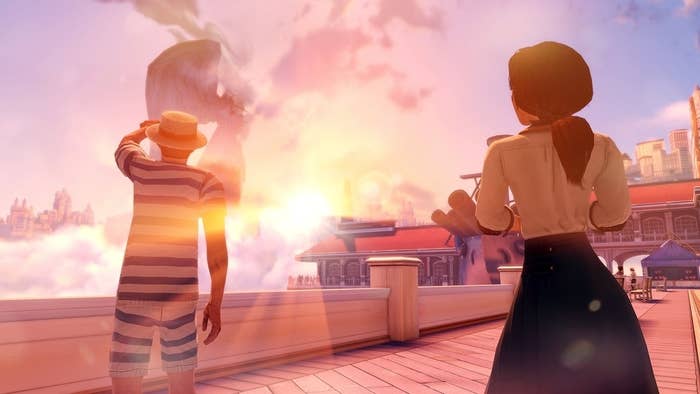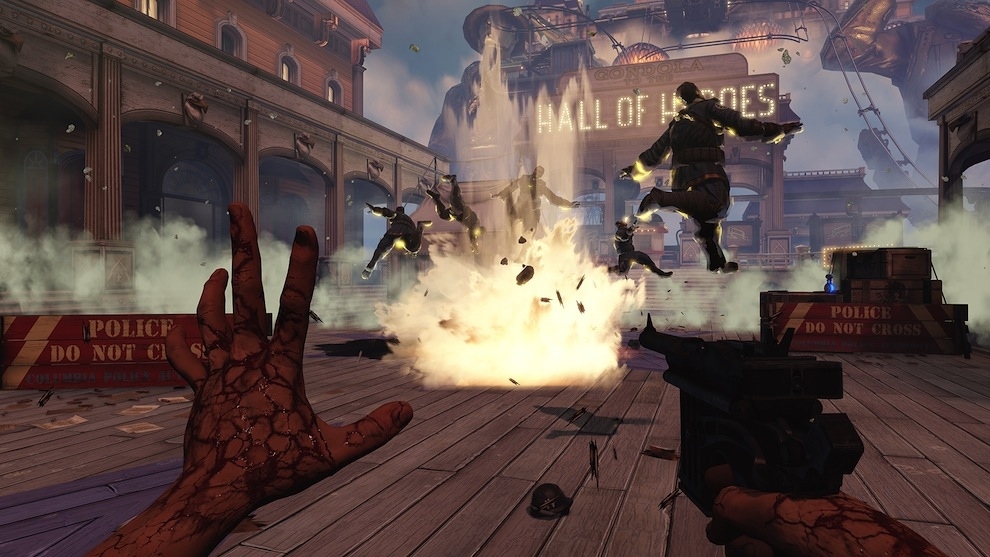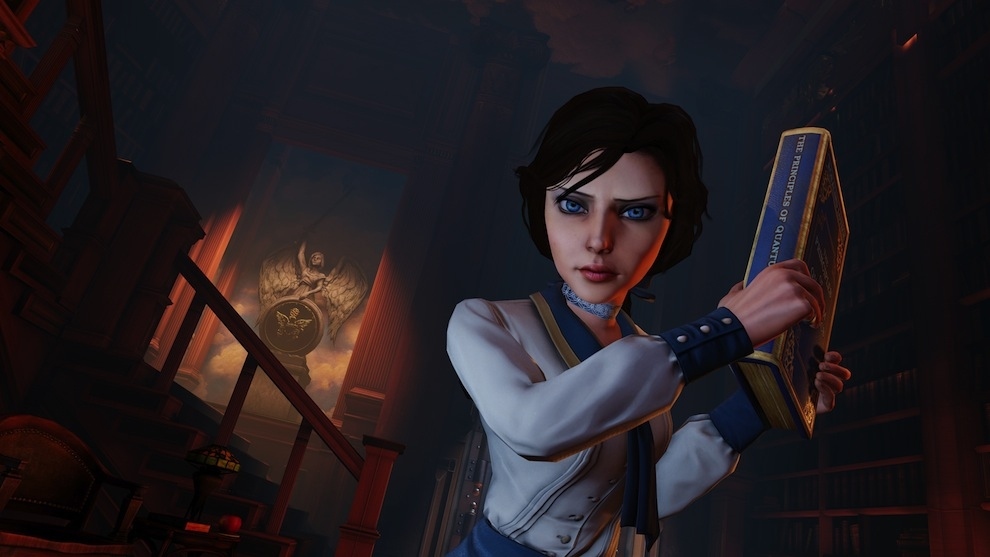
When Irrational Games' BioShock came out in 2007, it seemed to herald a new age for video games. A first-person shooter about a failed Randian utopia, BioShock married finely honed and accessible play to the sort of narrative and thematic sophistication that is normally the domain of novels and films. For lack of a better phrase, BioShock was a game that felt like art. It inspired endless conversation and argument amongst the people who think about and make games for a living; it illuminated endless American living rooms. It spawned probably the single most influential intellectual analysis ever written about a game; it sold almost 5 million copies. It was a fun game for smart people, or the other way around. It was a blockbuster with an indie spirit, and it united gamers in pride: Look at what our medium can do.
Half a decade later, gaming is in many ways fracturing: between a crassly commercial mainstream that is too often content to iterate, and an inaccessible and sometimes arrogant avant garde that is too often content to be obscure; between casual and "core" gamers; between mobile and stationary; between those who want to interrogate violence in games and those who want to ignore it; between those who think games should be narratives and those to whom story in gaming is a hindrance, if not altogether anathema. Other recent games have attempted to ask questions of the ubiquitous shooter genre, but they've either been too muddy with their themes or too sloppy with their play to succeed both as games and as culture. If it seems like it's been less than half a decade since BioShock, that's because nothing has come close to matching it. (And that includes BioShock 2, a sequel that was developed by another studio.)
So you could say that the release next month of BioShock Infinite is an important moment in gaming. It is made by the same people as the first game, including the series' auteur, Ken Levine. It's been in development for five years. It's been chronically delayed. It has cost some multiple of the $15 million the original cost to make. If Rockstar's behemoth Grand Theft Auto V wasn't looming at the end of the year, there's no question that this would be the most anticipated title of 2013. And more than any game this year, it represents a chance for some of the divisions in gaming and between gaming and the culture at large to heal themselves.
I've just played the first four hours of the game, and they convey the unmistakable impression that Irrational knows what they accomplished with BioShock and are trying to recapture it. Rapture, the whimsical underwater Art Deco city of the first game, is replaced by Columbia, a whimsical, neoclassical city in the clouds. Like in the first game, the fantastical setting is revealed through the windows of a tiny motorized pod. Like in the first game, the story begins in medias res and finds you playing as a quasi-amnesiac (here, Booker DeWitt) with murky motives and a mysterious past. Like in the first game, you follow and are followed by a larger-than-life, ideologically fervent villain (and here, the xenophobic, Christian maniac Zachary Comstock replaces the Objectivist maniac Andrew Ryan. Here, instead of asking us to consider the implications of a society dedicated to rational egoism, we are asked to consider the implications of a society dedicated to Know-Nothing Protestant-American exceptionalism). And like in the first game, the thrill of the combat comes from the combination of old-timey guns with grotesque and fanciful powers, for example, the ability to summon a murder of starving crows.

I'd call this all a formula, but it works a charm, and no one else has even hinted that they can do it. Also, there are very obvious signs throughout the part of the game I played that what Irrational wishes to recapture of the first game is its ambition and sense of wonder, not its moment-to-moment experience. Before you enter Columbia, you are literally baptized, nearly drowned by a rapturous preacher, before being washed out into the clouds. The message is this: We're far from the depths of Bioshock. Dry off.
The best chance BioShock Infinite has to be remembered as more than just the worthy successor to a legendary title, though, comes about two hours into the game. After the wonderful, if familiar, first act of Infinite, you meet Elizabeth, who becomes your constant companion, assistant in combat, and bantering partner. Her entrance, which I won't spoil, is the best moment of the first few hours. The plucky female companion is one of gaming's more endearing tropes — play Ico and the 2008 Prince of Persia remake for a quick education — and Elizabeth could prove to be the most endearing of them all. She has been animated and articulated with more than a hint of the classic Disney princess and very little of the sexism that too often attends female sidekicks in games. The dynamic between Booker and Elizabeth is probably the reason I am most excited to play the full game.

And then there are the touches of sublimity and great humor in BioShock Infinite that remind you that Irrational are in a class of their own in mainstream gaming: a floating barbershop quartet singing the Beach Boys' "God Only Knows"; ferocious, animatronic George Washingtons known in the game as "founding fathers"; a grumbling black janitor who turns to sarcastic obsequiousness when you enter the room; the striped bathing costumes of the 1910s on a mid-air beach. How often can most games say they make us smile?
So, the worst-case scenario for BioShock Infinite is that it is merely excellent, not groundbreaking, which is vastly more, of course, than most games can claim. And based on what I saw today, I'm certainly not ruling out the latter possibility. For for their next project, though, I wonder if it is too much to ask for Irrational to put aside the utopias. Artists possessed of this much intelligence, creativity, and charm might just have something to say about the real world.


